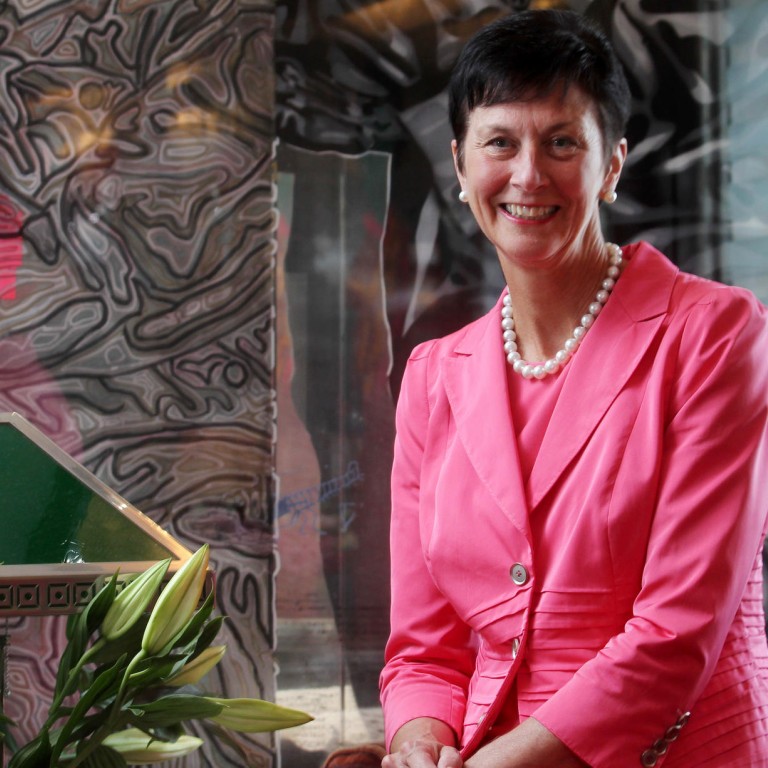
BNY Mellon eyes China expansion
President of world's largest custody bank says US lenders are moving back into Asia after recovering from the financial crisis
American banks, whose assets and reputation were hit after government bailouts and job cuts during the 2008 financial crisis, are set to come back to Asia, partly due to their stronger capital bases, says one of Wall Street's most influential bankers.
Karen Peetz, the president of BNY Mellon, the world's largest custody bank, said US banks would "inevitably" come back to Asia to invest because they must find additional profit and Asian markets were attractive in terms of both macroeconomics and growth in individual wealth.
As markets improve globally and investors show more confidence in US capital markets, major US banks are adding jobs. Some of the positions are aimed at regaining market share in key Asian markets such as Hong Kong and the mainland.
Wells Fargo, one of the major American banks least hit by the 2008 crisis, recently overtook Beijing-based Industrial and Commercial Bank of China to become the world's largest bank by market capitalisation. Before the 2008 crisis, Citigroup had been the world's largest financial services provider. Chinese banks climbed the rankings quickly.
"It is hard to say who dominates whom," Peetz told the , adding that US banks were well positioned to expand around the world again.
She noted that the economic recovery in the US had already begun to benefit American financial institutions in terms of their outlooks for revenue growth.
She said US banks were regaining the confidence to expand outside the US.
Peetz played an integral role in the US government's rescue of the US financial system during the financial crisis. When Lehman Brothers got into trouble in late 2008, she was leading BNY Mellon's global corporate trust division, which won the bidding to administer the Troubled Asset Relief Program, beating out 70 other firms. Under her leadership, the team helped distressed Wall Street firms gain access to liquidity.
BNY Mellon, which deals with one fifth of the world's daily financial assets flow - about US$26 trillion - has most of its assets in the US. It aims to increase the amount of revenue it is getting from fast-growing Asia.
One of the ways it plans on doing that is by selling investment products to American expatriates in Hong Kong. It sees an opportunity in this space as non-US banks are increasingly hesitant to offer such products due to regulatory requirements, such as the Foreign Account Tax Compliance Act (Fatca), which aims to prevent wealthy Americans from avoiding tax by requiring companies and banks to furnish more details about their US clients, said Peetz.
Stephen Lackey, the Asia-Pacific chairman of the bank, said 6.5 per cent of the bank's revenue was coming from Asia, compared with 4.5 per cent five years ago. "It would be wonderful if it can go to 9 per cent to 10 per cent," he said. "Some may view [Fatca] as an administrative burden," Lackey said, adding that BNY Mellon saw it as an opportunity to grab clients from its rival banks.
Fatca requires foreign financial institutions to report to the US Internal Revenue Service information about accounts held by US taxpayers, or foreign companies in which US taxpayers hold substantial ownership.
Peetz was named the bank's president in December last year. She took up the role on January 1.
Peetz joined BNY Mellon in 1998 from JP Morgan Chase, where she had worked for 16 years. She holds a Bachelor of Science degree from Pennsylvania State University, where she was an undergraduate in the 1970s. She also has a Master of Science from John Hopkins University.
She joined the board of trustees of Pennsylvania State University in 2010.
